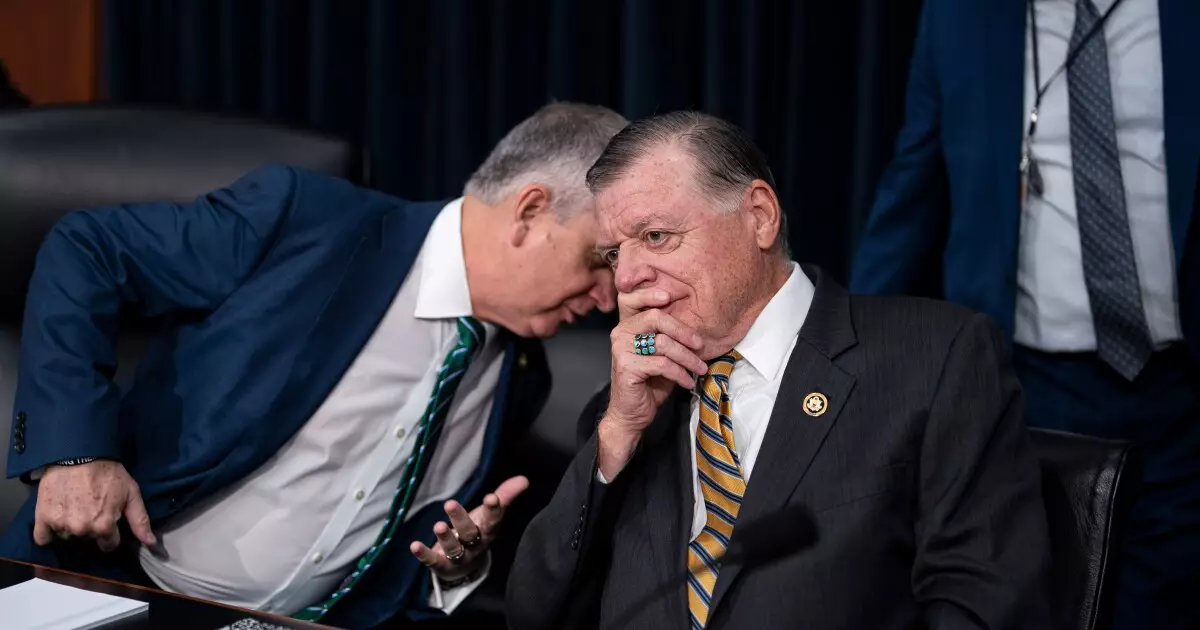As Congress returns to Capitol Hill in the coming week, the focus will shift to wrapping up the 118th Congress amid significant legislative undertakings. With a deadline looming for government funding and national defense authorization, lawmakers are confronted with pressing decisions that could have lasting implications. The lame-duck session, concluding on December 20, is primarily driven by must-pass legislation that aims to prevent a partial government shutdown while addressing critical disaster funding needs.
Brett Bolton, vice president of federal legislative and regulatory policy at the Bond Dealers of America, noted the precarious position Congress finds itself in. The fate of any municipal market priorities hinges on how effectively lawmakers clear the legislative deck of essential items. As they venture into this final stretch, legislators will need to determine if they can produce a seamless transition into the next fiscal year, particularly with tax implications looming for 2025.
The current continuing resolution is set to expire on December 20, necessitating prompt action to avert disruption in government services. However, the structure of the next funding bill is fraught with uncertainty. Lawmakers remain split on a top-line spending number, complicating efforts to craft a comprehensive fiscal 2025 budget before year-end. House Speaker Mike Johnson’s proposal for a short-term continuing resolution extending into early 2025 is intended to allow for future presidential influence over spending decisions. This shift underscores the balancing act that Congress must perform as they navigate fluid political dynamics.
The implications of these funding issues are exacerbated by the ticking clock; with an obligation to finalize a full fiscal budget by April, lawmakers are under pressure to act decisively. The potential for automatic sequestration cuts looms large, creating an atmosphere of urgency that could overshadow other legislative priorities.
In the midst of potential turmoil regarding government funding, there appears to be a bipartisan consensus on the urgency of disaster aid. Following discussions during a November 20 Senate Appropriations Committee hearing, lawmakers expressed a strong desire to incorporate substantial disaster funding into any stop-gap measures.
House Appropriations Chair Rep. Tom Cole affirmed this sentiment, indicating that disaster relief may feature prominently in upcoming negotiations. This bipartisan cooperation showcases a shared recognition of the importance of providing assistance to communities in crisis, highlighting a rare opportunity for lawmakers to unite in a productive manner amidst broader discord.
As part of their routine legislative duties, Congress must also tackle the annual National Defense Authorization Act (NDAA). Having successfully completed this critical legislation for 60 consecutive years, Congress faces expectations to follow suit once more. However, insiders anticipate limited expansions to the bill this year, contrasting sharply with previous years that introduced significant reforms and new requirements, including those affecting municipal bonds.
The potential for a public release of the NDAA text next week may provide insight into the priorities delineated by legislators. Yet, with limited appetite for ambitious changes, it is expected that the focus will remain on traditional defense appropriations rather than transformative policy initiatives.
In an interesting twist in the political fabric, Republican Senator Jodi Ernst’s commitment to advocating for budget cuts has surfaced as an emblem of shifting priorities within Congress. Tasked with leading a new Senate caucus focusing on governmental efficiency, Ernst has outlined an ambitious proposal for reducing over $2 trillion in federal spending. Her recommendations emphasize eliminating programs she deems wasteful, particularly regarding infrastructure investments tied to electric vehicle charging stations and broadband initiatives.
Additionally, Ernst’s identification of California’s high-speed rail project as a target for budget cuts has reinvigorated the debate over infrastructure spending and federal support. These discussions reflect broader concerns regarding fiscal responsibility within Congress as lawmakers grapple with the implications of their budgeting choices, particularly under a future Trump administration.
As Congress approaches the end of the 118th legislative session, critical decisions await. With a backdrop of funding uncertainties and pressing disaster aid needs, lawmakers must navigate a complex landscape of cooperation and disagreement. The outcomes of these discussions will shape not only fiscal policies for the upcoming year but also establish the tone for future legislative initiatives.

